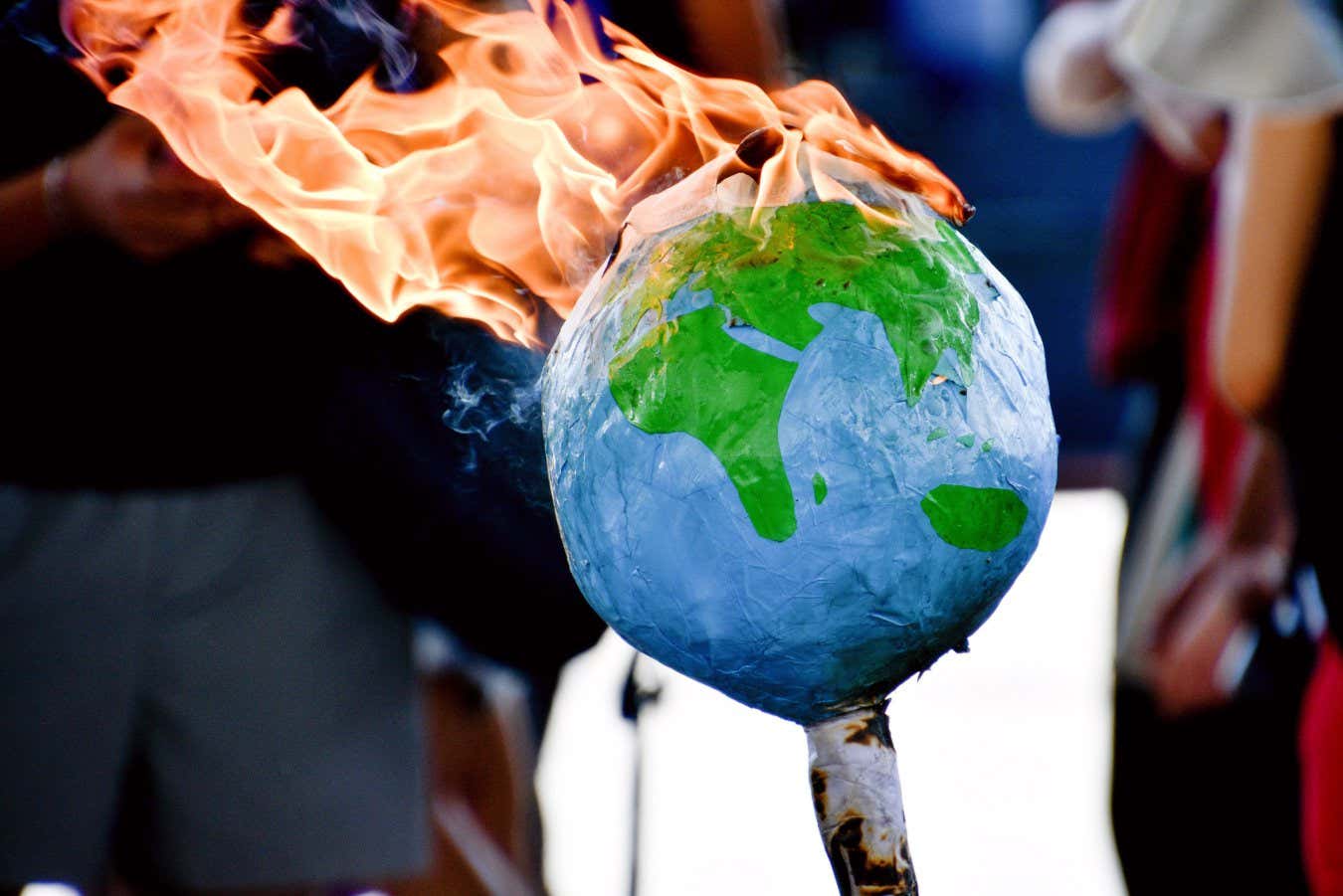

Gerard Bottino/SOPA Images/LightRocket via Getty Images
Almost two years ago, at the COP28 climate summit in the heart of the United Arab Emirates petrostate, governments pledged to start “transitioning away from fossil fuels in energy systems” in a bid to achieve net-zero emissions by 2050. Since then, the share of energy generated by fossil fuels globally has remained stubbornly above 80 per cent, as indeed it has done for decades.
As a result of our failure to decarbonise, researchers now believe we have triggered the first of Earth’s “tipping points” – moments where we have changed the climate so extensively that it can never fully recover. Ocean water is now so warm that the world’s coral reefs are at risk of extensive dieback (see page 9).
What is holding up the energy transition? This question has no easy answers, but an oft-repeated one is that just a handful of companies, mostly fossil fuel firms, are responsible for the vast majority of emissions. Such statements are open to criticism because they place the blame elsewhere, away from us, the customers, who are using their energy.
“
Big players in the tech sector are downplaying previous promises to reach net zero
“
However, it is fair to point the finger at oil and gas firms that trumpet their green ambitions while failing to deliver. Many of these companies tout their investment in renewables, but the reality is that they have made almost no contribution to what we must insist to be the future of energy production (see page 16).
Unfortunately, things look set to get worse before they get better. Emboldened by the Trump administration, many oil and gas firms have pledged to up production, while big players in other industries like the tech sector are downplaying their promises to reach net zero.
Next month will see governments meet again to talk climate policy, this time at COP30 in Brazil – well, sort of. The US is unlikely to be out in force, while the UK prime minister, Kier Starmer, is yet to confirm his attendance. At this point, it is reasonable to wonder whether any of our political or business leaders are taking the threat of climate change seriously. If they are, they must start acting like it.



